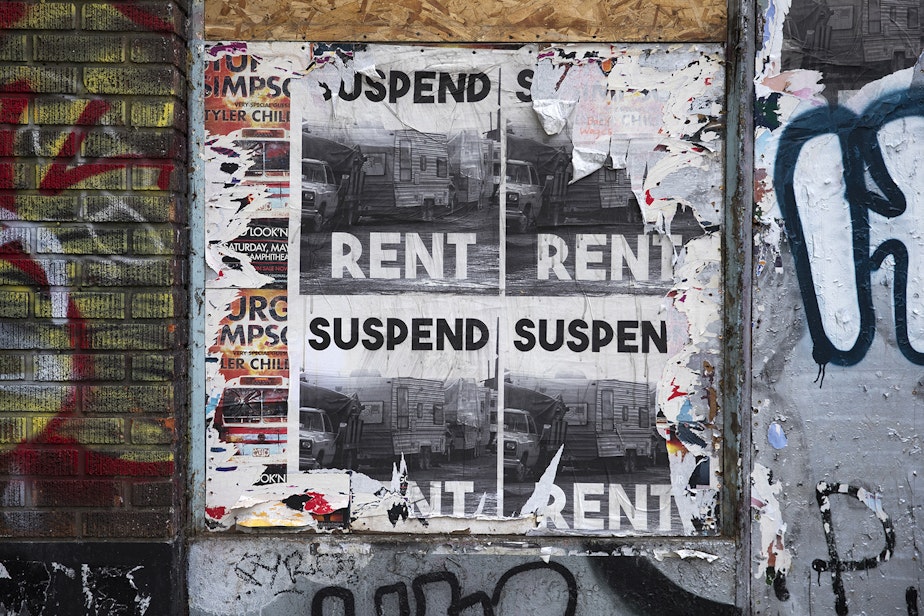WA lawmakers consider funding tenant legal representation as renters, landlords reel financially from pandemic

In Olympia, lawmakers are considering a bill that would make big changes to our state's eviction laws, including providing legal counsel to tenants facing eviction, who can't afford a lawyer.
If the bill becomes law, Washington would become the first U.S. state to provide legal representation for tenants facing eviction. Democratic State Senator Patty Kuderer, the bill's sponsor, spoke to KUOW about the proposed legislation.
First of all, the eviction process is a civil lawsuit. So, the answer to dealing with the potential surge in evictions had to do with the court process out of the gate. I am an attorney by trade. I know the value of having good representation when you're in court.
We looked at the data from other places where this is in effect. No state has legislated it, but other cities have done it. And the results are really startling. Well over 80% of the tenancies are saved. And in the end, what we're trying to do here is help tenants stay in their homes and help landlords get paid.
Sponsored
The litigation process can be complicated. The RLTA (Residential Landlord-Tenant Act) is very difficult for some to understand. Tenants a lot of times come in and they're not really prepared for what this means. This could mean that they're out on the street and homeless.
We have the Office of Civil Legal Aid. That office contracts with housing justice projects. This is what these lawyers do. They are very well-qualified to help tenants in this situation. And they're more likely to be able to resolve this case before it actually gets to the hearing.
This is really good bang for the buck. Homelessness costs taxpayers a lot of money — not to mention what it does to the people who endure it. It becomes a vicious cycle, in and out of homelessness. The best way to prevent homelessness is to stop it from happening in the first place.
We're looking at 150,000 families that are behind in rent. It's incumbent upon us to put some money into the system upfront to save as many of those tenancies as possible.
Interviewer's note: Once the eviction moratorium is over, state law says that tenants who are on month-to-month rental agreements can be asked to vacate anytime, without being given a reason. The landlord only has to give 20 days' notice.
Sponsored
Some cities, including Seattle and Burien, don't allow this. But Kuderer's bill would freeze these no-cause evictions for two years, beginning after the emergency order is done. There are quite a few landlords who don't want this change. They say what tenants really need is more rental assistance.
Sponsored
I'd say that I agree with [landlords] that we do need more rental assistance. We are also working on that. We have bills already moving through the system to address dedicated revenue streams for emergency rental assistance. We also have federal funding and state appropriation of dollars going into emergency rental assistance.
In terms of the 20-day no-cause notice, I would say this, that is another avenue in order to evict a tenant. Like I said, we have 150,000 families who are behind in their rent. There would be no guarantee that landlords would use the 14-day pay or vacate notice period, or this process that we have set up specifically to deal with this surge. Or, they would just default to the 20-day no cause. This is a temporary suspension of it for two years. That coincides with what economists tell us is about the time that people are going to need to climb out of this.
Listen to the interview by clicking the play button above.





